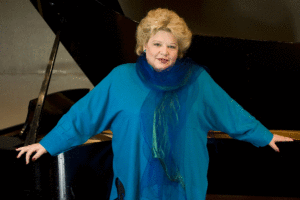
Dolora Zajick’s Three Keys to Vocal Longevity
By Francisco SalazarVocal longevity is a major concern these days for most singers. There was a time when people were entering their prime years in their late 30s or 40s.
But the industry has changed and singers are, in many case, forced into the limelight at younger ages. Seeing an international operastar at age 28 was illusory 50 years ago. It’s becoming quite commonplace these days.
Of course, singers are like athletes and the more they use their vocal chords, the faster wear and tear fits in. The problem is that unlike most athletes that have an expected shelf-life of one decade or so, opera singers don’t. They are expected to sing for decades on end.
Enter Dolora Zajick, an international mezzo who has been singing at major houses for half of her life. She made her professional debut in 1986 and is still going strong to this day at age 66. You probably know her for Azucena in “Il Trovatore.” She is also a teacher who understands the challenges of the modern opera world, having lived through the bridge years between the “Golden Generation” and the current one.
In a previous conversation, the famed mezzo spoke to OperaWire and offered up some ideas on what she thinks are the keys to vocal longevity.
1. Audition Your Teachers to Find the Right One
The first one is finding the right teacher. After all, it was her instructors who discovered her dramatic voice and they were also the ones who helped her find the right way of singing Bel Canto.
“I had a very odd trajectory in that I didn’t start singing until I was 21 and I got my first role when I was 22. Two years later I covered Azucena. So I was singing small roles right away for a long time. And my teacher taught me how to sing with honesty. He told me about Bel Canto and said you have to be able to start with a sound dead on. He taught me how to practice that.”
Moreover, Zajick offers a tip on finding that right teacher.
“You need to audition them. Don’t go to a school and expect a great one because you might get the bottom of the barrel. What you want to do is find the teacher first.”
The essential thing for Zajick is getting personalized training so the young singer can really develop.
2. Never Go Beyond Your Limits
The second thing that is crucial for voice maintenance is never singing beyond the voices means. As a mentor, Zajick has seen many students trying to sing repertoire that doesn’t really work for them.
“Don’t sing rep that is either too high or too big for you. People’s eyes get big because they want to sing Verdi. I know many people that have auditioned for me insisting that they’re Verdi and Wagnerian voices and they are not.”
And in many instances, the mezzo has told many singers to stick to the lyric repertoire because that is where their voices will flourish. In Zajick’s experience, there are few singers whose voices change from light soubrettes to dramatic.
“Do your homework. Know who you are and what part you fit in. If you’re not a soprano don’t try to be one. If you’re, not a Verdi singer don’t try to be one.”
3. Never Oversing
The final thing that Zajick believes is crucial is to never oversing. Oftentimes, singers are offered numerous contracts and it is hard to say no. However, that can be harmful because they overschedule to their detriment.
“I never sang opera performances back to back. I did a few concerts back to back but never opera. Some people are eager because you can make a lot of money, but if you do too many performances all at once you can burn yourself out and I have seen many people do that.”
Categories
Special Features

